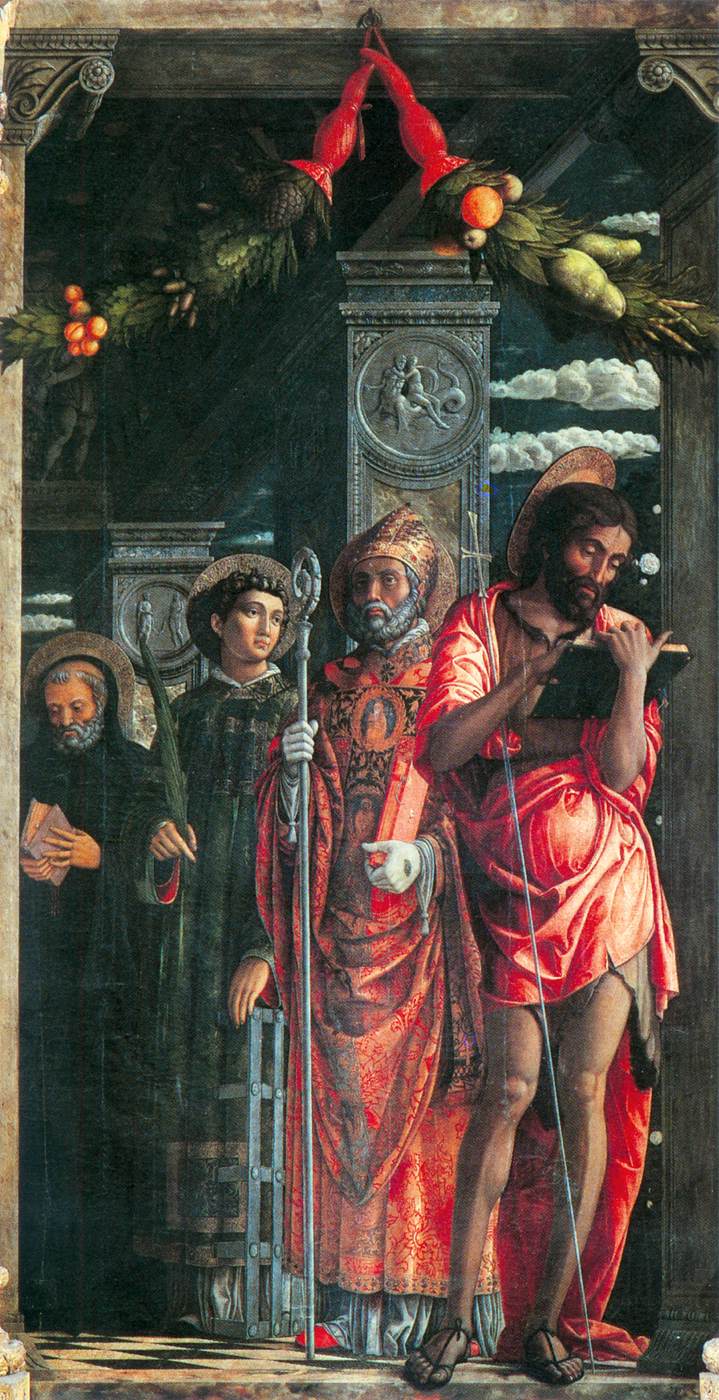Description
The painting San Zeno Polyptych (right part) by Andrea Mantegna is an Italian Renaissance masterpiece noted for its innovative artistic style and carefully crafted composition. This painting is part of a set of panels that were created for the high altar of the Basilica of San Zeno in Verona, Italy.
The right panel of the polyptych depicts Saint John the Baptist, Saint Peter, and Saint Paul. Mantegna uses a linear perspective technique to create the feeling of depth in the painting. The figure of Saint John the Baptist is represented in the foreground, while Saint Peter and Saint Paul are in the background. The position of the saints in the painting creates a sense of movement and dynamism that is typical of the Renaissance style.
The composition of the painting is very careful and symmetrical. The three saints are arranged in a diagonal line that runs from the lower left corner to the upper right corner. This diagonal line is intersected by another diagonal line that runs from the lower right corner to the upper left corner. The intersection of these two lines creates a vanishing point that draws the viewer's attention to the center of the painting.
The colors used in the painting are rich and vibrant. Mantegna uses warm shades of red, orange and yellow to bring the robes of the saints to life. Details on the robes, such as textures and folds, are carefully crafted and add a sense of realism to the painting.
The history of painting is fascinating. It was commissioned by the Sarego family in the 15th century and has been in the Basilica of San Zeno in Verona ever since. The painting has been the object of restoration and conservation over the centuries, which has allowed it to remain in an excellent state of preservation to this day.
In short, Andrea Mantegna's painting San Zeno Polyptych (right part) is an Italian Renaissance masterpiece noted for its innovative artistic style, carefully crafted composition, vibrant colors, and fascinating history. It is a work of art that continues to fascinate viewers to this day.

